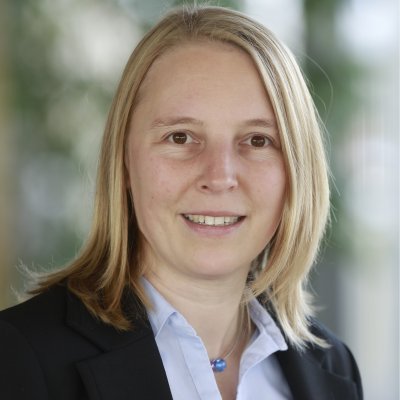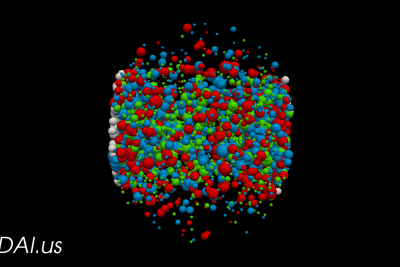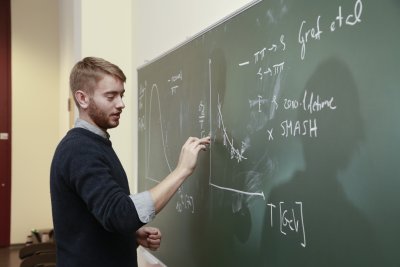Theoretical Physics – Research Groups
Research Group of Hannah Elfner (Petersen)

Relativistic heavy ion collisions offer the possibility to study strongly interacting matter under extreme conditions. By accelerating lead or gold nuclei to almost the speed of light and smashing them together, temperatures and densities can be reached as they have existed in the early universe only microseconds after the Big Bang. At such high energy densities the quantum field theory that is the theoretical foundation for strongly interacting matter, namely quantum chromodynamics (QCD), predicts a new phase of matter in which the constituents of the hadrons (protons and neutrons) are deconfined and can move independently of each other, the so called quark gluon plasma (QGP). After the observation of the transition to this new phase at high temperatures and low baryo-chemical potentials at the Relativistic Heavy Ion Collider (RHIC) and the Large Hadron Collider (LHC), the experimental exploration of the phase diagram will continue at the Facility for Antiproton and Ion Research (FAIR). By using fixed target experiments at lower beam energies to reach high net baryon densities more interesting regions will become accessible. For lower temperatures and higher densities the cross-over between the quark gluon plasma and the hadronic phase is expected to turn into a first order phase transition, separated by a critical endpoint.


